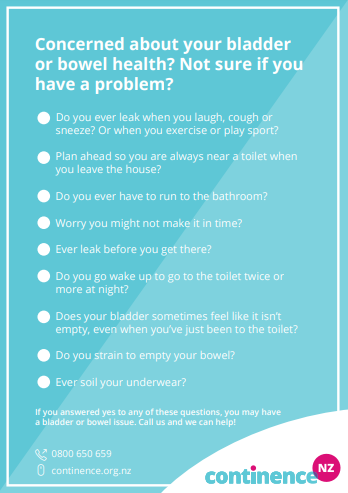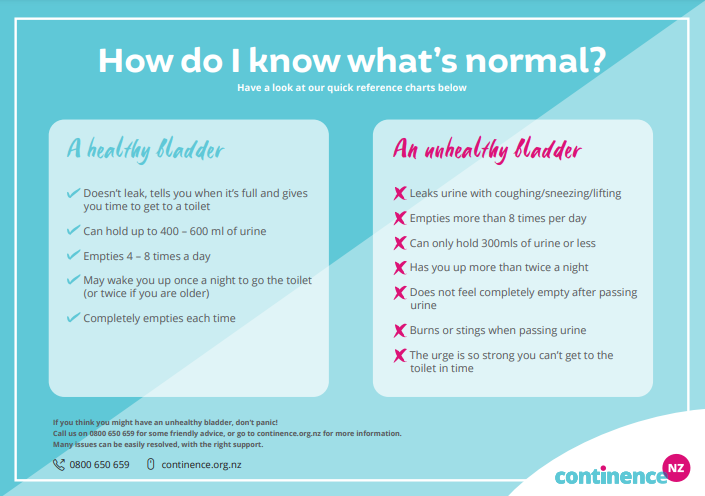Medicines and bladder control problems
Key points about medicines and bladder problems
- Medicines can be helpful for treating bladder control problems. However, for some people medicines can affect bladder control which can make it difficult to get to the toilet on time.
- Different medicines may do this in different ways and sometimes it's a combination of medicines that can make the problem worse.
- Find out more about medicines and bladder problems.

Some medicines can affect your bladder and can cause or make bladder control worse. These include some herbal products and medicines bought over the counter at the pharmacy.

Image credit: Canva
Different medicines may do this in different ways and sometimes it's a combination of medicines that can make the problem worse. This is more likely for older people or those who are taking a lot of medicines.
For example, medicines may:
- Increase urine production (eg, diuretics – also called water pills).
- Relax the the bladder which leads to urinary retention, or difficulty in starting to pee or straining while peeing.
- Relax the muscle at the outlet of the bladder which may cause leaking when coughing, sneezing or laughing.
- Relax the urethra leading to frequent peeing.
- Cause coughing which can cause stress incontinence.
Weak pelvic floor muscles, or an enlarged prostate can also contribute to bladder symptoms. Read more about bladder control problems and pelvic floor exercises for women and men.
Not all bladder problems are caused by medicines, so working out if your symptoms are caused by your medicine is not always easy. If you have noticed a change in bladder control when you started a new medicine or when you increased the dose of a medicine you were already taking, it could be because of your medicine.
If you are taking a medicine and are worried about your bladder problem don't stop taking your medicine suddenly. Instead discuss this with your doctor or pharmacist.
Sometimes there might be a different medicine you can take that has less effect on your bladder. Also, the risks of stopping or changing medicines should be balanced against the risks of bladder problems and other health effects.
- Diuretics such as furosemide, bumetanide, bendrofluazide.
- Antipsychotics such as risperidone, clozapine, olanzapine, quetiapine.
- Antidepressants such as amitriptyline, nortriptyline, doxepin, imipramine.
- Calcium channel blockers such as nifedipine, felodipine, amlodipine, diltiazem, verapamil.
- Antihistamines such as chlorphenamine (Histafen®) that has been discontinued in Aotearoa New Zealand from July 2023, dexchlorpheniramine (Polaramine®), promethazine (Phenergan®, Allersoothe®), cetirizine, desloratadine, fexofenadine, levocetirizine, loratadine.
Note: This is not a complete list. If you are unsure if the medicine you are taking can cause bladder control problems, ask your doctor or pharmacist.
Resources
Bladder chart – how do I know what's normal(external link) Continence, NZ English(external link), te reo Māori(external link), Chinese(external link), Hindi(external link), Tongan(external link)
Bladder and bowel checklist(external link) Continence, NZ English(external link), te reo Māori(external link), Chinese(external link), Hindi(external link), Tongan(external link)
5 questions to ask about your medications(external link) Health Quality and Safety Commission, NZ, 2019 English(external link), te reo Māori(external link)
References
- Drug-induced urinary incontinence(external link) US Pharmacist, 2014
Brochures


Medicines and side effects
Healthify He Puna Waiora, NZ, 2024
Credits: Sandra Ponen, Pharmacist, Healthify He Puna Waiora. Healthify is brought to you by Health Navigator Charitable Trust.
Reviewed by: Angela Lambie, Pharmacist, Auckland
Last reviewed:
Page last updated:






